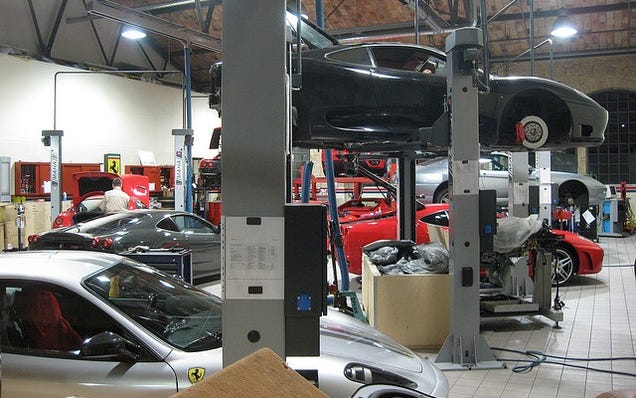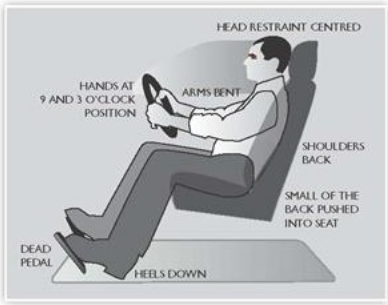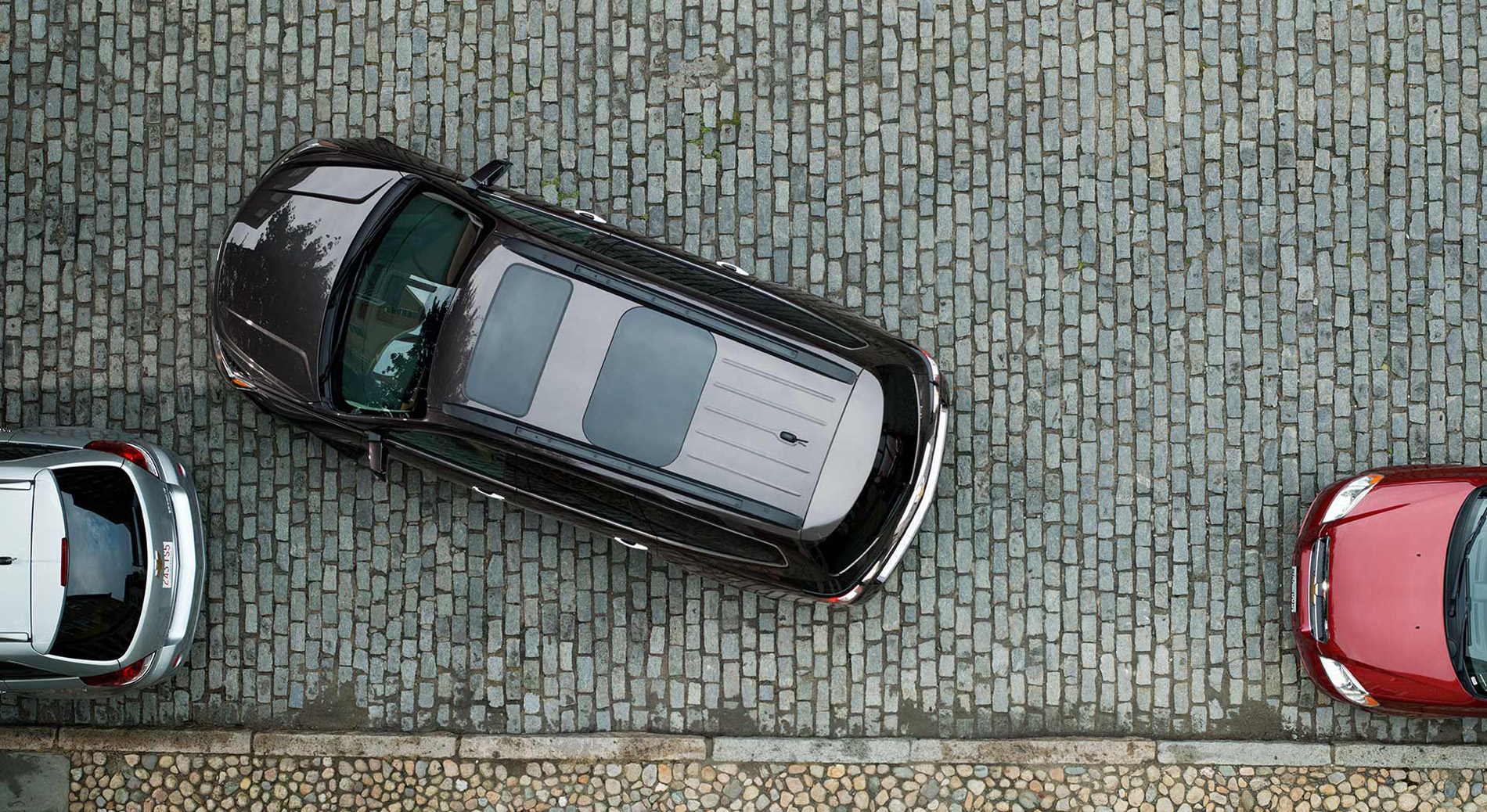Going the Distance: Is There Such Thing As Driving Too Often?
Do you like to feel the summer breeze blow your hair back, while your arm hangs out the window? Do  you like cruising through back-country roads, or winding up and down the forested hills? Or are you the type to keep your car parked, except for when you really need to take it out? Where do you fit in? Everyone uses their vehicles differently. Some people spend most of their days on the road, while others try to spend as little time on it as possible. That brings the question – how much should you be driving? Since some people think you can drive too much or too little, it’s worthwhile taking a deeper look at this topic for answers.
you like cruising through back-country roads, or winding up and down the forested hills? Or are you the type to keep your car parked, except for when you really need to take it out? Where do you fit in? Everyone uses their vehicles differently. Some people spend most of their days on the road, while others try to spend as little time on it as possible. That brings the question – how much should you be driving? Since some people think you can drive too much or too little, it’s worthwhile taking a deeper look at this topic for answers.
Is there a definitive answer? Depends on you
It’s hard to say what’s too much or too little. Ultimately, it depends on you. Since everyone has different circumstances and priorities, a suitable amount of driving for you will differ from your neighbour. It’s much like trying a particular diet. One person can gorge on a high protein diet that amounts to 4000 calories (ie. bodybuilders), while an individual looking to remain trimmed down would have to look far away. Consider some of the factors below.
Your occupation
Your job or school situation will most likely be the main factor that determines how much driving you do. First, consider the distance. If you live too far from your office or campus, riding the bus or subway might be the best way to get there. Perhaps, you’re in that grey area where you can take public transit, but need to give yourself 2 hours to get to point B. In such a case, you might take the bus or train occasionally, but rely more on your wheels. And then there’s the type of job you have. If you’re regularly changing sites or have to carry tools, it might be more practical to drive. But if you’re trying to save money on gas, insurance and parking fees, you can choose to divide your transit time in half, taking your car some days, while driving on other days.
Your hobbies and activities
We all need a little recreation, and it’s natural to venture out of neighbourhoods at times to enjoy our favourite hobbies. Again, the type of hobbies you enjoy could affect how often you drive. If you’re the outdoorsy type, enjoying activities such as camping or canoeing, you’ll no doubt have to drive further out of the city. If you like playing a game of pickup basketball or soccer with friends, you might only have to drive a few miles. Public transit or walking is also an option if the location of your activity is close by. And then there are those of you who like to make it a Netflix night (sorry Blockbuster), so driving won’t be necessary. You also have to factor in activities such as road trips and family visits. If your summers are filled with such journeys, you’ll definitely have to drive more than others who don’t.
Your location & accessibility to infrastructure
You also need to think about how easy it is to get around your area. For example, people living in a densely-populated city such as New York City or Tokyo, enjoy the luxury of a super-connected subway system. In both cities, it’s not uncommon for many residents to get from point A to B without needing a car. But even in a dense city like Toronto – with it’s meagre four subway lines (one which will get scrapped soon) – there’s a need to own a car. And then again, there are only a few major highways to get around, so sometimes the train or bus is necessary. It’s a conundrum for many people. Without going into much further detail, there are people who may have to let factors such as traffic, weather and construction dictate how they get to their destination. If you fall into this group, ask yourself if splitting your travel time between public transit and driving is the best choice.
 It’s Not the Distance, It’s the Drive
It’s Not the Distance, It’s the Drive
Ultimately, the amount of driving you do isn’t the most important thing. With that said, there will be more wear and tear on a vehicle that’s been driven around too often, and it will not last as long. But the distance isn’t what matters in the long run.
Regular maintenance
Everyone must maintain their vehicle for the best performance possible. However, if you’re on the road a lot, it’s even more important. So that means never neglecting your oil change, brake tests and all the other practices that come with regular maintenance.
Cut down on costs where possible
The more you drive the more you spend. It’s a rule. You’ll spend more on gas, more on repairs, even more on insurance. Also consider things like parking and car washes. More, more, more! But you can cut down on some of these costs by washing your own vehicle, learning to do some repair/maintenance jobs on your own, and learning where the free parking spots are. 😉
Safe driving behaviour
The more time you spend on the road, you’ll no doubt expose yourself to more hazards on the road. This could be in the form of accidents, breakdowns or poor road and weather conditions. Now these things aren’t always avoidable, but you can minimize the chances of them happening by driving with maximum caution and safety.
This could be in the form of accidents, breakdowns or poor road and weather conditions. Now these things aren’t always avoidable, but you can minimize the chances of them happening by driving with maximum caution and safety.
Dangers of Over-Driving
Although the limits of driving ultimately depend on your lifestyle and circumstances, it is possible to drive a car too much. You’ve probably heard the expression, “driven to the ground”, and it’s a term that applies to many vehicles that now rest forever in junkyards. With that said, there are other problems that can arise out of over-driving.
Gone Too Far
- Wear and tear – As already mentioned in this post, driving more than you really need to will lead to faster wear and tear. You might find yourself making more repairs than others, and with that comes more expenses.
- Health issues – People who spend time more on the road are likely to get stuck in traffic, and that could lead to heart problems, stress and obesity if it always happens. Also, spending excess time in your vehicle could expose you to more pollutants than normal.
- Pollutes the environment – If you’re concerned about the environment, understand that spending more time on the road means more emissions. The only way to resolve this is by limiting your driving (if possible) or considering a hybrid.
How Far Will You Go?
As you can see from reading this post, there’s no definitive answer as to how much time you should spend driving. It’s highly individual. What really matters is how you maintain your vehicle, and what you do to prepare it for the activities you engage in. With that said, you might have to make adjustments based on what happens to your vehicle or priorities. In other words, it may become necessary or more practical to drive less. No matter how far you decide to go or how often you choose to drive, stay safe and take good care of your car.





